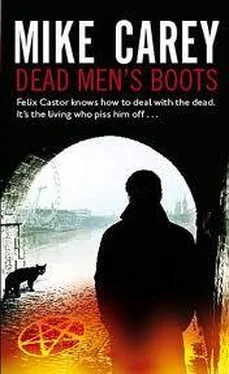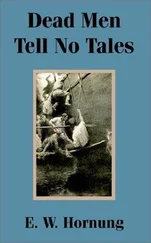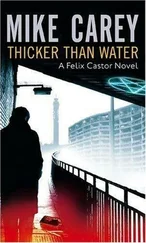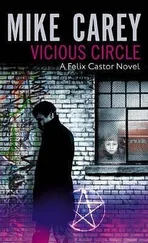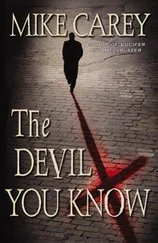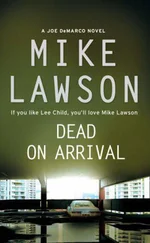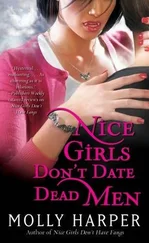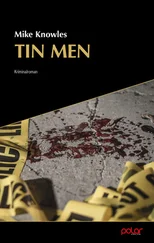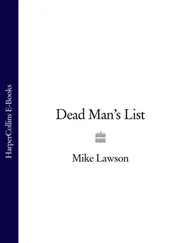Covington’s voice rose and fell in the bedroom, his words never quite becoming audible. I could hear Kale’s replies, though.
‘No. I didn’t see you. I looked for you and I didn’t see you. You left me!’
Murmuring from Covington.
‘Oh, that’s fine! That’s wonderful! Whatever you want to call it. Fucking – cocks! Cocks talking, calling themselves men! Love me? Oh yeah, I’ll bet you do. I’ll bet you do!’
Murmur.
‘Well, this is me, now. It’s not him any more, it’s me.’
Murmur.
‘I don’t even know the way. But if I knew the way, I couldn’t do it. Not on my own, Les! Not – not all that way, on my own. Don’t make me. Don’t ask me to.’
Murmur.
‘No.’
Murmur.
‘You can’t. Don’t lie to me! I won’t even have a fucking hand to hold.’
Murmur.
Long silence.
Kale laughed, and the laugh turned into a sob.
‘Don’t leave me. Don’t leave me, Les. I’m so scared.’
And now for the first time I heard him answer her.
‘I’m going, Mimi. I’ve made up my mind. And you can’t keep a hold on this body any more, not without me and the others to help you. Come now, with me, or come later, on your own. That’s the only choice you’ve got.’
Another long silence.
Covington appeared in the doorway. ‘We need you,’ he said.
At any other time I might have baulked at the thought of playing two souls at the same time: but I’d just played two hundred and come out of it with my mind intact, so this didn’t feel too hard. And Covington didn’t want a full exorcism: just an unbinding. Just something that would lift them both out of their flesh and leave them free to move.
Embarrassingly, though, it was a while before the music would come. I’d flogged my talent pretty hard that night, and the sense of dissociation still hung around me like the wooziness after anaesthesia. Covington had untied Kale’s arms and upper body and they sat together on the bed, his arms protectively around her – or rather Doug’s – shoulders. She clung to him so hard that I could see the whitening of her knuckles. The two of them stared at me wordlessly, like already condemned prisoners waiting to hear the outcome of some last appeal.
At last I ventured a note, and I knew when I heard it that it wasn’t right. I held it anyway, and then modulated down the scale until I locked into something that felt like it was alive and moving. I let it find its own way out through the bore, almost unstopped, using breath control alone to shape it. It wasn’t a tune: it was an incoherent wail pretending to be music.
Covington kissed Myriam Kale on Doug Hunter’s forehead, whispered something that I couldn’t hear over the sound of the whistle, and then slid sideways off the bed. Kale lasted a few moments longer before slumping back onto the pillow, her eyes glazing over before they closed.
Covington’s ghost was just a smudgy blur hovering over his body: maybe that was a side effect of the protective camouflage that the risen dead of Mount Grace had used in the days of their ascendancy – or maybe it was just a side effect of being so damn old, and having slid and elided his way through so many different flesh-houses over the last hundred years. Maybe he’d just distilled down into this minimal place-holder for a human shape.
But Kale was magnificent. I saw then, for the first time, what the photos had failed to capture: the energy and the feral grace that had drawn so many men in and made the great Aaron Silver linger and be lost.
The two spirits – the one so painfully vivid, the other so very nearly not there at all – came together in the air over the bed and then started to waver as though in some kind of heat haze. It was something I’d never seen before: self-exorcism, a willed and wanted abdication. Kale smiled as she faded: but then apes smile when they’re afraid, and there was something of blind terror about her eyes. But she was looking at Covington – at the man who’d been born Aaron Berg, and then had worn so many other names – and I thought the expression was softening into something else as it sublimed out of my visible spectrum altogether.
Doug Hunter came around after only a few minutes. I was afraid he might draw entirely the wrong conclusion from finding himself tied to a bed in a room in a strange house with a guy he didn’t recognise sitting on a chair next to the bed, but that was one complication I didn’t have to worry about. He was too weak and too sick at first to care much about where he was, and his memories came back with his strength.
Peter Covington – assuming that was the blond man’s original name – wasn’t so lucky. Like Maynard Todd, he’d been ridden for much longer by the Mount Grace dead and it had damaged him more deeply. He lay on the floor, conscious but unable or unwilling to move, his lips moving silently.
I helped Doug to untie himself, and then I helped him to stand.
‘Where’s . . . Jan?’ he slurred.
‘Waiting for you at home,’ I told him. ‘You want to go there now?’
He tried to speak, but couldn’t get the word out. He nodded instead.
‘You’re still wanted for murder, Doug. You probably want to give yourself up rather than let them catch you and bring you in.’
He nodded again. ‘To–tomorrow.’
Yeah. There’s always tomorrow.
The world turned under me, and I turned with it.
These things harrowed me with fear and wonder at the time, but you know how it is: with the endless repetitions of memory they lost a lot of their impact after a while. You’ve probably had similar weeks yourself.
With Sue Book guarding her like a tender-hearted Rottweiler, Juliet recovered almost a hundred per cent in the wee space of a couple of weeks – but there’s a world of meaning in that ‘almost’. Moloch had wounded her on a level deeper than flesh, and so there was only so much that flesh could do to mend it. She refused to talk about the details and when I kept pressing anyway, prurient bastard that I am, she handed me an invitation in a dinky, girly little envelope with a silver border. I stopped when I got to the line that read CEREMONY OF CIVIL UNION. I’m still hoping that the names, when I get to them, will be those of two people I don’t know from Eve.
Gary Coldwood recovered too: he endured six months’ suspension from duty, but he was reinstated in his original rank when the evidence of a fit-up piled up so high it was in danger of toppling over and hurting someone: the engine block of his car had been tampered with, and likewise the brakes. There were rope burns on his hands and his upper lip had been split wide open by whoever had force-fed him the booze: they even found some broken glass from a Bacardi bottle in his upper palate. He used his half-year of enforced leisure to finish his forensics course, and you can’t have a conversation with him now without coagulation, post-mortem artefacts or stellate wound patterns getting a mention. But he’s got the limp, and he’s got the scar, and there’s an unspoken something in the air now whenever we meet. He doesn’t expect me to apologise: it wouldn’t help if I did. Maybe we’ll just meet less and less often until either the something or the friendship goes away.
Jan Hunter came and found me at my office in Harlesden one bleak Tuesday afternoon shelving dangerously into evening. She tried to pay me the rest of the money we’d agreed when she hired me. I kept my hands in my pockets.
‘I do read the papers, Jan,’ I said. ‘Doug got off on the murder charge because they finally decided to allow that hammer in as evidence. But he still got three years for the jailbreak. You don’t owe me a thing.’
‘You know exactly what I owe you, Mister Castor,’ she insisted. ‘Whoever did the crime, it’s my husband who’s going to serve that sentence and it’s my husband who’ll come out – next year, if he keeps his nose clean – to find me waiting for him. If it wasn’t for you, I might never have seen him again.’
Читать дальше
